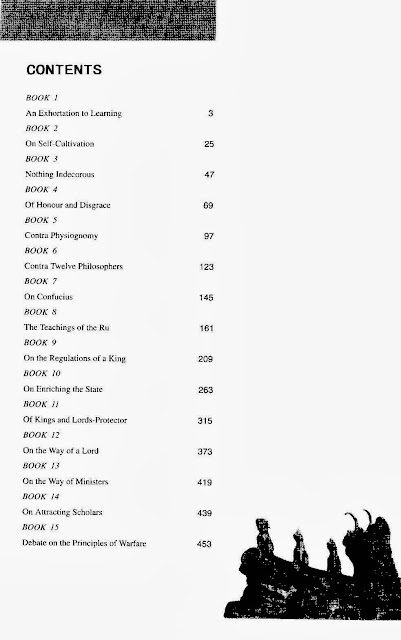Posters for He's a Woman, She's a Man (1994)
1. Year end is a time for reflection and anticipation.
One question to think about is what to accomplish in the coming year.
To Chase After by Leslie Cheung can help set the mood for thinking about this question.
Beside quantifiable goals, are there important personal relationships in one's life?
As the lyrics put it so beautifully: "You" are the real target ("你是真正目標").
2. To Chase After ("追") was the theme song of the 1994 movie He's a Woman, She's a Man ("金枝玉葉").
Leslie Cheung was the male lead of this movie and he also sang the theme song.
To Chase After won the Best Original Film Song of the 1995 Hong Kong Film Award.
He's a Woman, She's a Man is a very good movie and I must have watched it at least 3 to 4 times over the years.
The movie is a love story and yet is so much more than a love story.
He's a Woman, She's a Man reflected on what is important in life.
It bears watching repeatedly.
3. "Official version" of the song:
http://www.youtube.com/watch?v=9w7Y4O-IPMA
http://www.youtube.com/watch?v=HcSE3cQH-Ic
The video are scenes from the movie.
4. The scenes are from the movie:
http://www.youtube.com/watch?v=do3NEBHIY2c
http://www.youtube.com/watch?v=MhZbab8Muj0
http://www.youtube.com/watch?v=AdLJ3UOxo-w
The female lead is Anita Yuen, Miss Hong Kong 1990.
5. Leslie Cheung in concert in Hiroshima, Japan:
http://www.youtube.com/watch?v=bQgJ8G76-hs
6. Leslie Cheung in concert in 1997:
http://www.youtube.com/watch?v=dMFvYChjkA0
http://www.youtube.com/watch?v=D9bMOSsbwwI
http://www.youtube.com/watch?v=cB0kDiK_lI8
7. Leslie Cheung in concert in Malaysia in 2000:
http://www.youtube.com/watch?v=EKdVTrsGaxk
8. This is just the song by Leslie Cheung:
http://www.youtube.com/watch?v=auoGVwvH-U0
http://www.youtube.com/watch?v=l1oe6PcA6NU
http://www.youtube.com/watch?v=BABjxSvhVFQ
http://www.youtube.com/watch?v=WrTUNK80Yp4
http://www.youtube.com/watch?v=oBy5hTLKCD4
9. A cover by Jacky Cheung:
http://www.youtube.com/watch?v=WKNgvrehBgo
10. Covers by Cass Phang:
http://www.youtube.com/watch?v=-anmoIcU2NE
http://www.youtube.com/watch?v=MkRdL1cds8c
http://www.youtube.com/watch?v=ZKOpCK_OjM0
11. A cover by Eason Chan (right) and Hins Cheung (left):
http://www.youtube.com/watch?v=kYNPNyKjh4w
12. A cover by Julian Cheung Chi-Lam:
http://www.youtube.com/watch?v=iKXjUXa1WL4
Chi-Lam is the husband of Anita Yuen and together they have a son.
13. A cover by Eric Suen:
http://www.youtube.com/watch?v=TgbFwju4OcE
14. A cover by Fiona Sit:
http://www.youtube.com/watch?v=AEDPd8f6V94
15. Piano covers:
http://www.youtube.com/watch?v=-WWrdOL6xvc
http://www.youtube.com/watch?v=_Oj9TneWaqA
http://www.youtube.com/watch?v=zm6aVwzMQgI
16. The Lyrics in Traditional Chinese:
追 -- 張國榮
這一生 也在進取 這分鐘 卻掛念誰
我會說 是唯獨你 不可失去
好風光 似幻似虛 誰明人生樂趣
我會說 為情為愛 仍然是對
* 誰比你重要
成功了敗了也完全無重要
誰比你重要
狂風與暴雨都因你燃燒
# 一追再追 只想追趕生命裡一分一秒
原來多麼可笑 你是真正目標
一追再追 追蹤一些生活最基本需要
原來早不缺少 Wo...
有了你 即使平凡卻最重要
(只得你 會叫我彷彿人群裡最重要)
好光陰 縱沒太多 一分鐘那又如何
會與你 共同渡過 都不枉過
瘋戀多 錯誤更多 如能重新做過
我會說 願能為你 提前做錯
Repeat *, #, #
有了你 即使沉睡了 也在笑
17. The Lyrics in Simplified Chinese:
追 -- 张国荣
这一生 也在进取 这分钟 却挂念谁
我会说 是唯独你 不可失去
好风光 似幻似虚 谁明人生乐趣
我会说 为情为爱 仍然是对
* 谁比你重要
成功了败了也完全无重要
谁比你重要
狂风与暴雨都因你燃烧
# 一追再追 只想追赶生命里一分一秒
原来多么可笑 你是真正目标
一追再追 追踪一些生活最基本需要
原来早不缺少 Wo...
有了你 即使平凡却最重要
(只得你 会叫我彷佛人群里最重要)
好光阴 纵没太多 一分钟那又如何
会与你 共同渡过 都不枉过
疯恋多 错误更多 如能重新做过
我会说 愿能为你 提前做错
Repeat *, #, #
有了你 即使沉睡了 也在笑
18. Names, Words and Phrases:
Anita Yuen (Traditional Chinese: 袁詠儀; Simplified Chinese: 袁咏仪).
Cass Phang (Traditional: 彭羚; Simplified: 彭羚).
Eason Chan (Traditional: 陳奕迅; Simplified: 陈奕迅).
Eric Suen (Traditional: 孫耀威; Simplified: 孙耀威).
Fiona Sit (Traditional: 薛凱琪; Simplified: 薛凯琪).
Hins Cheung (Traditional: 張敬軒; Simplified: 张敬轩).
Hiroshima (Traditional: 廣島; Simplified: 广岛).
Jacky Cheung (Traditional: 張學友; Simplified: 张学友).
Julian Cheung Chi-Lam (Traditional: 張智霖; Simplified: 张智霖).
Leslie Cheung (Traditional: 張國榮; Simplified: 张国荣).
Reference:
"金枝玉葉", Wikipedia - The Free Encyclopedia,
http://zh.wikipedia.org/zh-hk/%E9%87%91%E6%9E%9D%E7%8E%89%E8%91%89
(accessed 2013-12-31).
End.























